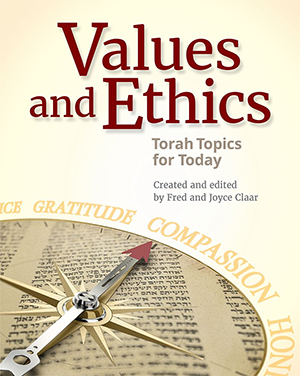BEHAR —
“Sticks and stones can break my bones, but names can never hurt me.” This ditty, often recited by kids when they are called names, is designed to protect a child from the meanness of other children. But, words, truth be told, are powerful weapons. Indeed, it would be more honest to chant: “Sticks and stones can break my bones, but names can hurt me!” Children are especially vulnerable to the words of another.
In our Torah portion this week we are enjoined “not to wrong one another”, meaning not hurt one another with words. Instead we are to consider the effect of our words on others carefully, reflecting on the word choices we make and their impact on others. The Jewish tradition places great emphasis on not hurting another’s feelings.
It’s important to model for our children the appropriate use of language by being considerate of our children’s feelings. Harsh words and tone can hurt more often than we realize. Even when discipline is called for, it is important not to speak too harshly to our children. Our words can backfire, causing damage and retreat. Firm but kind words can be a much more effective teaching tool than yelling, even when a child has done something wrong. In this way a child can learn kindness toward his or her friends and family.
TALK TO YOUR KIDS about how words can hurt feelings and remind them to stop and think before reacting or talking.
CONNECT TO THEIR LIVES:
- Has anyone ever called you a name or hurt you with the words the person used?
- How did you respond?
- Have you ever hurt someone else with the words you’ve used?
- What other words do you think you could have chosen?
- What other ways do you think we can learn to communicate other than by using hurtful language?
By Rabbi Dianne Cohler-Esses
Values & Ethics—Through a Jewish Lens is created by Fred and Joyce Claar to bring the wisdom of Judaism into family discussions.






